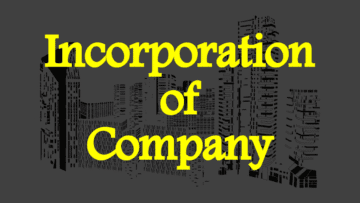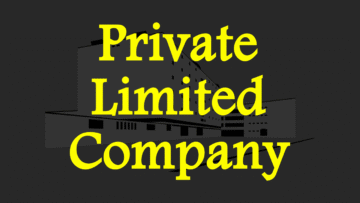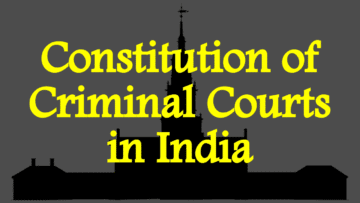It is often heard in the market that the valuation of a so and so business has become so and so or that a business has been bought or sold at a price higher than its value. One of the main reasons this happens is goodwill because just as there is respect for human beings, there is goodwill for business too. Goodwill not only helps in the valuation of the business but also helps in connecting and retaining customers with the business.
The more goodwill a business has, the more likely it is to trust the business, which can lead to a higher valuation of the business. Goodwill is formed by the quality, quantity, age of the business, nature of the business, etc. Goodwill shows the picture of the business and helps in determining how much existence of the business is in the market.

Table of Contents
What is Goodwill?
Meaning of Goodwill
Goodwill is an intangible asset of the business and is considered as the reputation of the business. This helps in making businesses different from each other, as a business is given preference in the market due to its reputation. As a business makes its place in the market, it becomes more influential. The goodwill of a business will be more or less in the market depending on the nature of the business, time, product, location, etc.
Goodwill has a monetary value in business, and it helps in increasing the assets of the business, it is shown on the asset side of the balance sheet of the business (purchased goodwill). In accounting it is mainly used when buying, selling, and valuing a business.
Goodwill is calculated by many methods like average profits method, super profits method, capitalization method, etc. Each method has its own features so which method will be used to calculate goodwill depends on the business and circumstances.
Definition of Goodwill
According to Eric L. Kohler – “Goodwill is the present value of expected future income in excess of normal returns on the investment in tangible assets.”
According to J.O Magee – “The capacity/ability of a business to earn profits in the future is basically what the term goodwill means.”
According to Lord Lindley – “The term Goodwill is generally used to denote the benefit arising from connections and reputation.”
According to Spicer and Pegler – “Goodwill may be said to be that element arising from the reputation, connections, or other advantages possessed by a business which enables it to earn greater profits than the return normally to be expected on the capital represented by the net tangible assets employed in the business.”
Features of Goodwill
Following are the features of goodwill:
1. Reputation:
Goodwill is considered as the reputation of the business and it plays a very important role for the business because on the basis of goodwill, the business is given priority in the market. As the business establishes its identity in the market, it starts building goodwill in the market. Any business can make its identity in the market through goods, services, quality, etc.
2. Monetary Value:
Goodwill has a monetary value because the business has to work hard to earn it. The monetary value of any business depends on its reputation in the market. Goodwill can be valued in several methods and which method to use depends on the business and situation.
3. Intangible Assets:
Goodwill is an asset of the business because it has monetary value. It is an intangible asset because it cannot be seen or touched, only understood through results. It is shown on the asset side of the balance sheet of the business.
4. Fluctuation:
Goodwill is not static; It always fluctuates as various factors affect goodwill. The main reasons for affecting goodwill are quality, quantity, service, age of business, nature of business, activity of business, presence of business in the market, etc.
5. Price Determination:
Goodwill plays a very important role while determining the price of a product because the goodwill of the business is also taken into consideration while determining the price of a product. There is a possibility that a business that has more goodwill will also have a higher price for its product. Generally, the price of the product is determined as per the internal policy of the business.
6. Valuation of Business:
Goodwill plays an important role in determining the valuation of a business as it has monetary value and is an asset of the business. The greater the goodwill of a business, the higher the valuation of the business can be but business, situation, etc. can impact this.
7. Inseparable:
Goodwill is inseparable from business because goodwill is built on the basis of business. The goodwill of any business remains with it throughout its existence. One cannot buy or transfer goodwill from a business alone, if one has to buy or transfer goodwill then it is possible only with the business.
Read Also:
QNA/FAQ
Q1. What is Goodwill?
Ans: Goodwill is an intangible asset of the business and is considered as the reputation of the business.
Q2. Does goodwill have monetary value in business?
Ans: Yes, goodwill in business has monetary value.
Q3. Is goodwill shown on the asset side of the balance sheet?
Ans: Yes, goodwill (purchased) is shown on the asset side of the balance sheet.
Q4. Is goodwill helpful in business valuation?
Ans: Yes, goodwill is helpful in business valuation.
Q5. Is goodwill not stable?
Ans: Yes, goodwill is not stable as it is always fluctuating.
Q6. Write the features of goodwill.
Ans: Following are the features of goodwill:
1. Goodwill is the reputation of a business.
2. Goodwill is an intangible asset of a business.
3. Goodwill has monetary value.
4. The nature of goodwill is fluctuating.
5. Goodwill helps determine the price of the product.
6. Goodwill is an important factor in business valuation.
7. Goodwill is inseparable from business.













